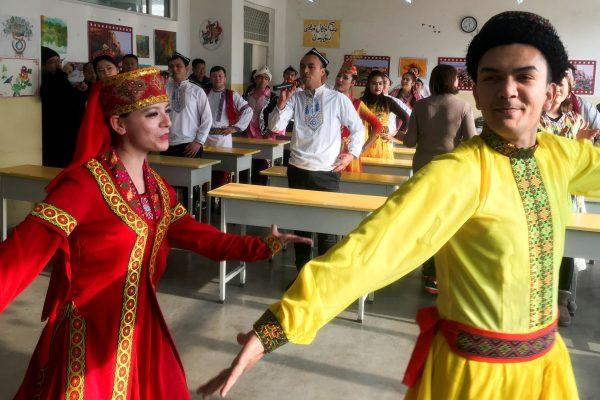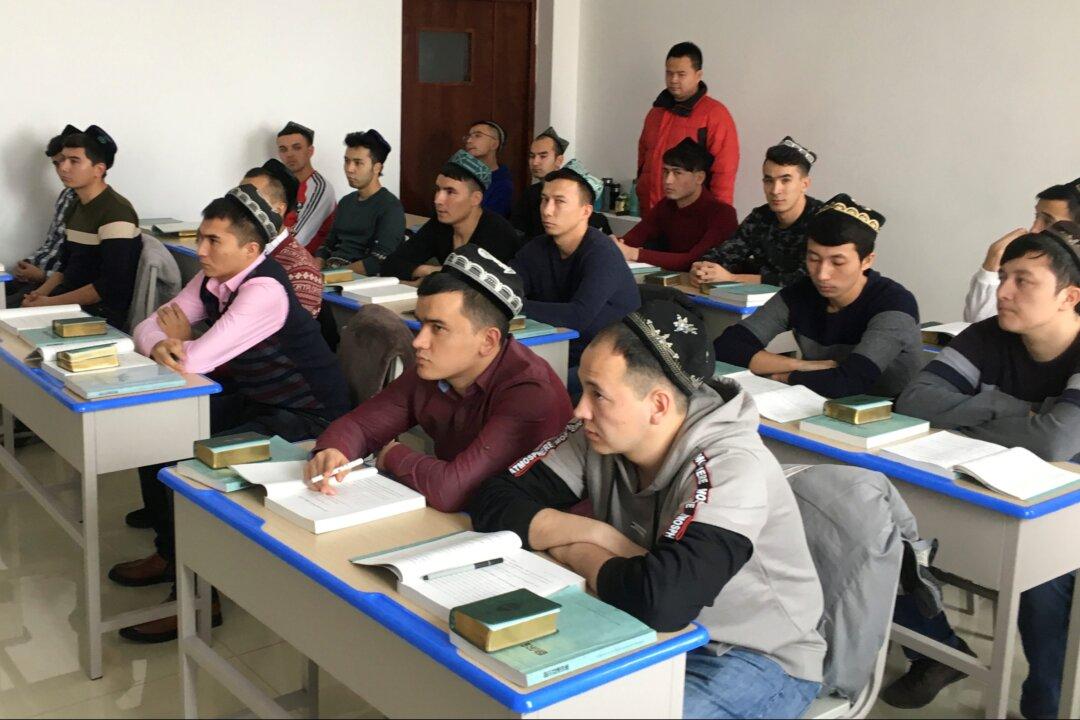GENEVA—Rights activists urged European and Muslim nations on Feb. 4 to take the lead in establishing a U.N. investigation into China’s detention and what they call its “forced indoctrination” of up to one million Uyghurs and other Muslims in Xinjiang.
Beijing, which faces growing international concern over its “de-radicalization” program for Muslims in its far western region, said last month it would welcome U.N. officials if they avoided “interfering in domestic matters.”
Groups including Human Rights Watch and Amnesty International appealed to the United Nations Human Rights Council, which opens its main annual session on Feb. 25, to send an international fact-finding mission to Xinjiang.
“The abuse in Xinjiang today is so severe that it cries out for international action,” Kenneth Roth, executive director of Human Rights Watch, told a briefing at the Geneva Press Club.
“The purpose of this detention is to erase the ethnic and religious identities of Turkic Muslims and ensure their loyalty to only the Chinese government, the Communist Party and the would-be leader for life, (Chinese leader) Xi Jinping,” he said.

Beijing says it is not enforcing arbitrary detention and political re-education, but rather some citizens guilty of minor offenses were being sent to vocational centers to provide employment opportunities.
However, a report published on Nov. 5 by U.S. think-tank the Jamestown Foundation found that despite the purported large “vocational training” campaign, employment outcomes had not markedly improved, according to Xinjiang’s own official employment figures.
“Xinjiang’s budget figures do not reflect increased spending on vocational education … Rather, they reflect patterns of spending consistent with the construction and operation of highly secure political re-education camps designed to imprison hundreds of thousands of Uyghurs with minimal due process,” said the report’s author, Adrian Zenz, an anthropologist at the European School of Culture and Theology in Germany.
“Open-Air Prison”
Campaigners say one million Uyghurs, Kazakhs and other Muslim minorities—nearly 10 percent of Xinjiang’s total population—are being held in mass detention, deprived of any legal rights and subjected to mistreatment.“Member states must not be cowed by China’s economic and political clout,” he said.
The Chinese regime has used the excuse that Xinjiang faces a serious threat from Islamist militants and separatists who plot attacks and stir up tensions with the ethnic Han Chinese majority to crack down on the local population in Xinjiang.
China is currently a member of the 47-nation Geneva forum, where it often leads opposition to setting up investigations into allegations of rights abuses in specific countries.
The Organization of Islamic Cooperation (OIC), which acts as the collective voice of the Muslim world, worked with the European Union last September to launch a U.N. body to prepare evidence of crimes in Myanmar against Muslim Rohingya, including possible genocide, for any future prosecution.
“In our view Xinjiang demands a similar response,” Roth said.
Michael Ineichen of the International Service for Human Rights said: “It is really a test of the credibility of the Human Rights Council... We think it is time that membership also comes with scrutiny.”





